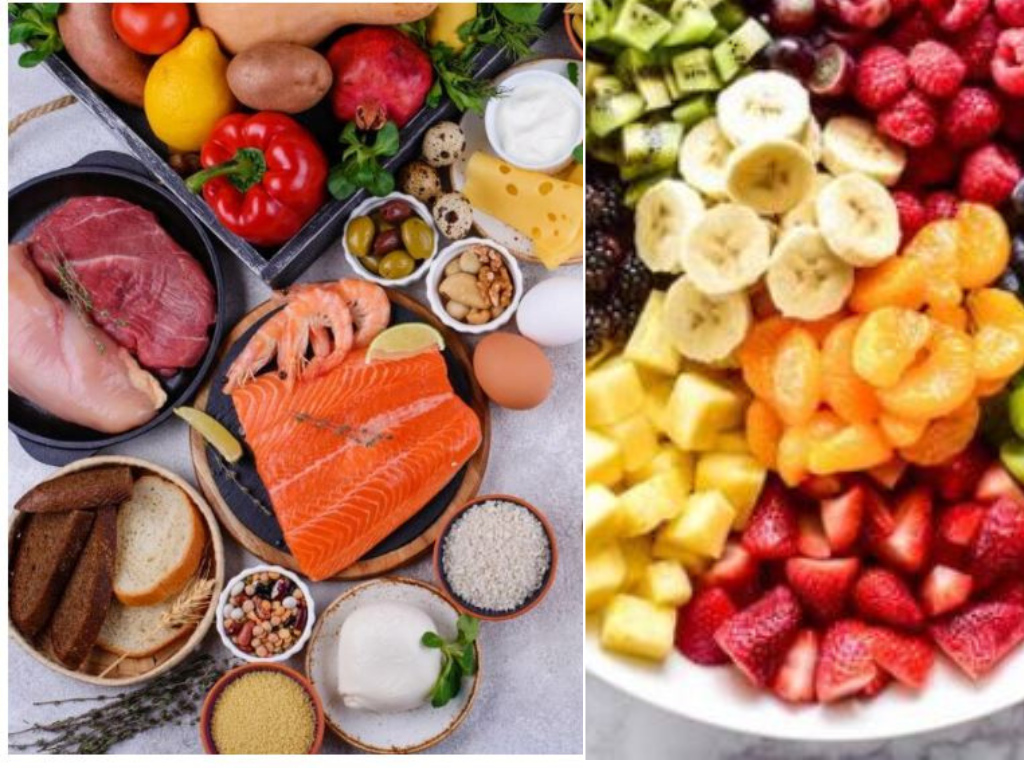What Are Calories and Why Do They Matter?

Calories are a fundamental concept in nutrition, often referred to as the energy currency of the body. Essentially, calories measure the amount of energy that food and drinks provide. This energy is crucial for powering both physical activities and essential bodily functions, including digestion, blood circulation, and temperature regulation.
When we consume food, our bodies break it down to extract this energy, which is then used or stored for future use. The energy derived from calories enables us to perform daily tasks, engage in exercise, and maintain vital physiological processes. However, not all calories are created equal when it comes to health and weight management.
One important distinction to make is between ’empty calories’ and nutrient-rich calories. Empty calories are those that come from foods and drinks high in sugars and fats but low in essential nutrients. Examples include candy bars, sugary beverages, and processed snacks. While these foods can provide a quick energy boost, they lack the vitamins, minerals, and other nutrients necessary for overall health.
On the other hand, nutrient-rich calories come from foods that provide not only energy but also vital nutrients. Vegetables, fruits, whole grains, lean proteins, and healthy fats fall into this category. These foods support bodily functions, help manage weight, and contribute to long-term health. Thus, the quality of calories is just as important as the quantity.
Understanding the role of calories in the body and recognizing the difference between empty and nutrient-rich calories, is essential for anyone aiming for healthy weight loss. By focusing on nutrient-dense foods, individuals can achieve a balanced diet that supports both energy needs and overall well-being, paving the way for effective and sustainable weight management.
The Importance of Nutrients Beyond Calories

When discussing healthy weight loss, the focus often narrows to calorie counting. However, nutrients such as vitamins, minerals, proteins, fats, and carbohydrates play indispensable roles that transcend mere energy provision. Understanding these roles is essential for achieving not just weight loss, but optimal health.
Proteins are fundamental to muscle maintenance and repair. They serve as building blocks for muscles, enzymes, and hormones, making them vital for bodily functions and overall health. A diet rich in high-quality proteins, such as lean meats, legumes, and dairy products, ensures that the body has the necessary components to rebuild and maintain muscle tissue, especially during weight loss when muscle mass can be compromised.
Healthy fats, often misunderstood, are crucial for brain function and hormone production. Omega-3 and omega-6 fatty acids, found in fish, nuts, and seeds, support cognitive health and regulate important hormonal activities. These fats also aid in the absorption of fat-soluble vitamins like A, D, E, and K, which are essential for various bodily functions ranging from vision to immune response.

Carbohydrates should be recognized as the body’s primary energy source. Complex carbohydrates, such as those found in whole grains, vegetables, and fruits, provide sustained energy and are rich in fibre, which supports digestive health. Unlike simple sugars, complex carbohydrates break down slowly, preventing spikes in blood sugar levels and providing a steady energy supply.
Vitamins and minerals, though required in smaller quantities, are no less critical. They participate in myriad biochemical processes that sustain life. For instance, vitamin C is pivotal for collagen synthesis and immune support, while calcium and vitamin D are essential for bone health. Iron facilitates oxygen transport in the blood, and magnesium is involved in over 300 enzymatic reactions.
A balanced diet that incorporates a variety of these nutrients is paramount for effective weight loss and overall well-being. Focusing solely on calorie reduction without considering nutrient intake can lead to deficiencies, diminished immunity, and reduced muscle mass, ultimately hindering health and weight loss goals. Therefore, a holistic approach that values nutrient diversity and quality is essential for sustainable and healthy weight loss.
Debunking Common Diet Myths

In the realm of dieting and weight loss, numerous myths and misconceptions often lead individuals astray, impacting their ability to achieve sustainable and healthy outcomes. One of the most pervasive myths is the notion that all calories are equal. While it’s true that a calorie is a unit of energy, the source of these calories plays a crucial role in how they affect our bodies. For instance, 200 calories from a sugary soda will affect the body differently than 200 calories from a serving of vegetables. The latter provides essential nutrients and fibre, which support overall health and satiety, whereas the former mainly offers empty calories that can lead to spikes in blood sugar levels and subsequent hunger.
Another widespread misconception is the idea that fats should be entirely avoided. This myth stems from outdated dietary guidelines that painted all fats with the same brush. Fats are an essential macronutrient necessary for various bodily functions, including hormone production and the absorption of fat-soluble vitamins. It’s important to distinguish between unhealthy trans fats and saturated fats, which should be limited, and healthy fats found in foods like avocados, nuts, seeds, and olive oil. Including healthy fats in one’s diet can aid in weight loss by promoting feelings of fullness and reducing overall calorie intake.
Moreover, reducing weight loss to merely a matter of calorie counting oversimplifies a complex process. While creating a calorie deficit is fundamental to weight loss, the quality of the food consumed, metabolic rate, and individual health conditions also play significant roles. For example, protein-rich foods can boost metabolism and preserve muscle mass during weight loss, while high-fibre foods can enhance digestive health and prolong satiety. Thus, focusing solely on calorie intake without considering nutrient density can lead to inadequate nutrition and unsustainable eating patterns.
By debunking these common diet myths, individuals can make more informed choices that not only facilitate weight loss but also promote overall well-being. Understanding that the quality of calories, the importance of healthy fats, and the complexity of weight loss are crucial steps towards healthier, more effective dietary practices.
Strategies for a Balanced, Nutrient-Rich Diet

Achieving a balanced, nutrient-rich diet is essential for sustainable weight loss and overall health. The cornerstone of such a diet is incorporating a variety of food groups to ensure you receive an ample supply of essential vitamins, minerals, proteins, fats, and carbohydrates. By prioritizing nutrient-dense foods while maintaining a caloric balance, you can effectively support your weight loss goals without compromising your nutritional needs.
Start by planning your meals with a focus on whole, unprocessed foods. Fresh fruits and vegetables should be the foundation of your diet, as they are rich in vitamins, minerals, and fibre while being relatively low in calories. Aim for a colourful plate to ensure a diverse intake of nutrients. Include lean proteins such as chicken, fish, tofu, and legumes to support muscle maintenance and repair. Healthy fats, sourced from avocados, nuts, seeds, and olive oil, are also crucial for absorbing fat-soluble vitamins and promoting satiety.
Portion control plays a significant role in maintaining a caloric balance. Using smaller plates, measuring portion sizes, and being mindful of hunger cues can help prevent overeating. It is also beneficial to distribute your caloric intake evenly throughout the day with balanced meals and snacks to keep your metabolism steady and energy levels stable.
Incorporating a variety of food groups ensures that your body receives a well-rounded intake of essential nutrients. Whole grains, such as brown rice, quinoa, and oats, provide sustained energy and are excellent sources of fibre. Dairy or dairy alternatives can offer calcium and vitamin D, necessary for bone health. Don’t forget to hydrate adequately, as water is vital for nearly every bodily function, including metabolism and digestion.
By following these guidelines, you can create a balanced, nutrient-rich diet that supports healthy weight loss and promotes long-term vitality. This approach not only helps in shedding pounds but also ensures you are nourishing your body with the essential nutrients it needs to thrive.